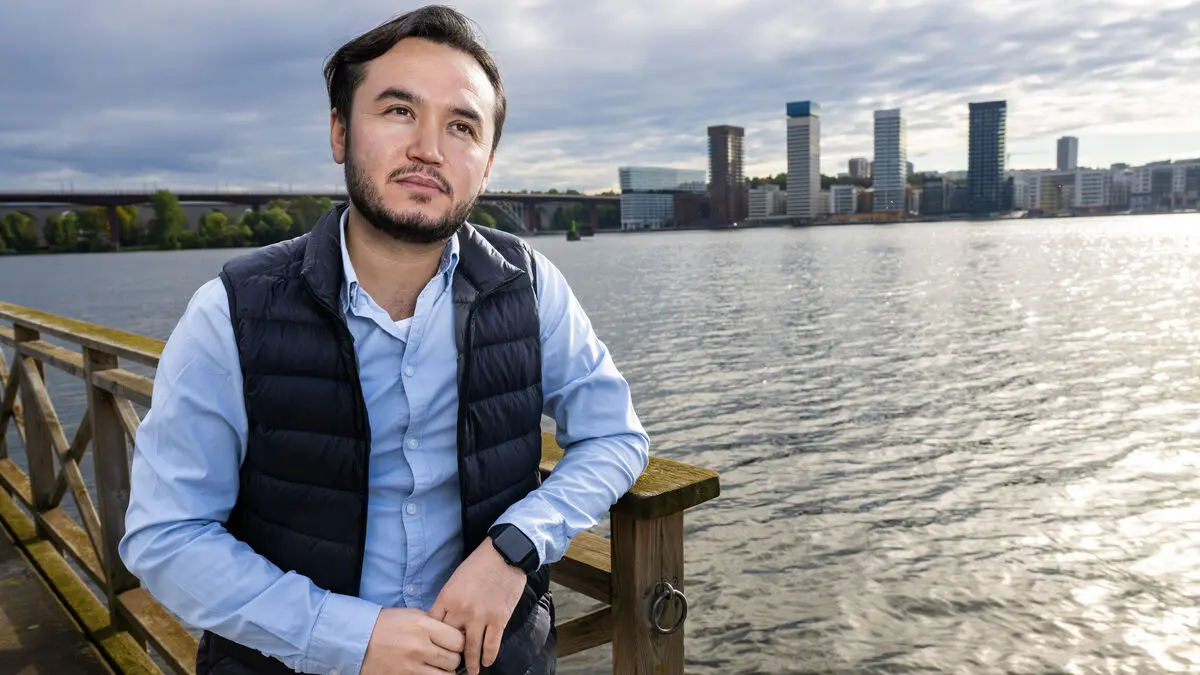In November 2015, the so-called refugee crisis reaches its peak. At that time, around one million people from Syria, Iraq, Afghanistan, Somalia, and Sudan have come to Europe in the hope of a better life.
One of them is Farzan Mozaffari, 16 years old, who takes his first steps on Swedish soil when he steps off the Öresund train at Malmö central station.
It was a feeling of freedom, of no longer having to be worried, he says to TT ten years later.
He belongs to the persecuted Hazara minority in Afghanistan and he has been forced to leave his family in his home country. On his own, he has made his way to Malmö via Pakistan, Iran, Turkey, Greece, and further, large parts on foot.
Along the way, he has encountered shooting border police, been exploited by smugglers, and seen a sea for the first time in his life – in the middle of the night together with 50 other migrants in a rubber boat intended for ten.
The journey was the hardest thing I've been through. I didn't understand that then. But now that I reflect, I understand how dangerous it was, he says.
Heard about Sweden
Initially, he has no planned final destination, but along the way, he hears that Sweden is a good country, with a generous asylum policy. He doesn't know much more about the country that he hopes will become his new homeland.
That first feeling of freedom disappears. Malmö is dark and cold, and the Swedes also seem cold. The Migration Agency's investigation feels like a long police interrogation, where one both distrusts him and is poorly informed about how it is in Afghanistan.
They didn't know what they were talking about. They may have had a lot of workload, but it also becomes wrong if you make decisions on those grounds. The whole process didn't feel fair, he says.
After some shuttling, he ends up in the countryside outside Vallentuna. There, everything is even darker and quieter – but now he gets to start school and meet another side of Sweden.
I wanted to study and learn the language, and I could compare it to school in my home country. Here, it looks completely different, it felt like I was in the right place. It was a feeling of hope.
The others were denied
He has to start from scratch and go through the entire elementary school from the beginning. He completes it in two years at the same time as he learns Swedish. Just as he has learned the language and started to get into Swedish society, the asylum process is complete. He is terrified of being denied.
Farzan is not denied, he gets a residence permit. But he has trouble rejoicing over the news.
Most of the others got no. They were the people I had the most contact with, in school and so on. Where I lived, there were five of us, and the other four got no. You had built a relationship with them, everyone had become friends.
Farzan Mozaffari was one of 35,000 unaccompanied children who applied for asylum in Sweden in 2015. According to SCB, more than 20,000 of them still live here today. Of these, eight out of ten have employment.
Farzan has been working at the organization Right by me for a few years, which, among other things, works to help young people with a foreign background into the labor market. But right now, he is on leave to study at the university.
His studies take up most of his focus, but he also has time to meet friends and exercise sometimes. His family is still in Afghanistan. He doesn't want to talk much about them, but says that it has become even harder to keep in touch since the Taliban restricted access to the internet.
He likes life here, but at the same time, he doesn't quite recognize himself. The country that received him has changed over ten years, he thinks. Today's society is different, with a completely different refugee policy – much due to the refugee wave that he was a part of.
"Worried and stressed"
Recently, the government's investigator proposed a new law, with the possibility of revoking permanent residence permits. This made Farzan's nagging worry from the asylum process flare up again.
It's a way to scare people, to give them panic and take away their sense of security, he says.
But the worry is not just about staying or not, but that you feel affected by those questions. To be in this country and feel worried and stressed all the time, just because of how you look and what background you have.
It's not about complaining about Sweden, he emphasizes,
But I have a lot to say about the things that happen in Sweden, especially about the issues that concern me and the group I belong to. There, I see it as my right to be able to express myself as one of those who lives in this society. I contribute to it and want the best for Sweden.






